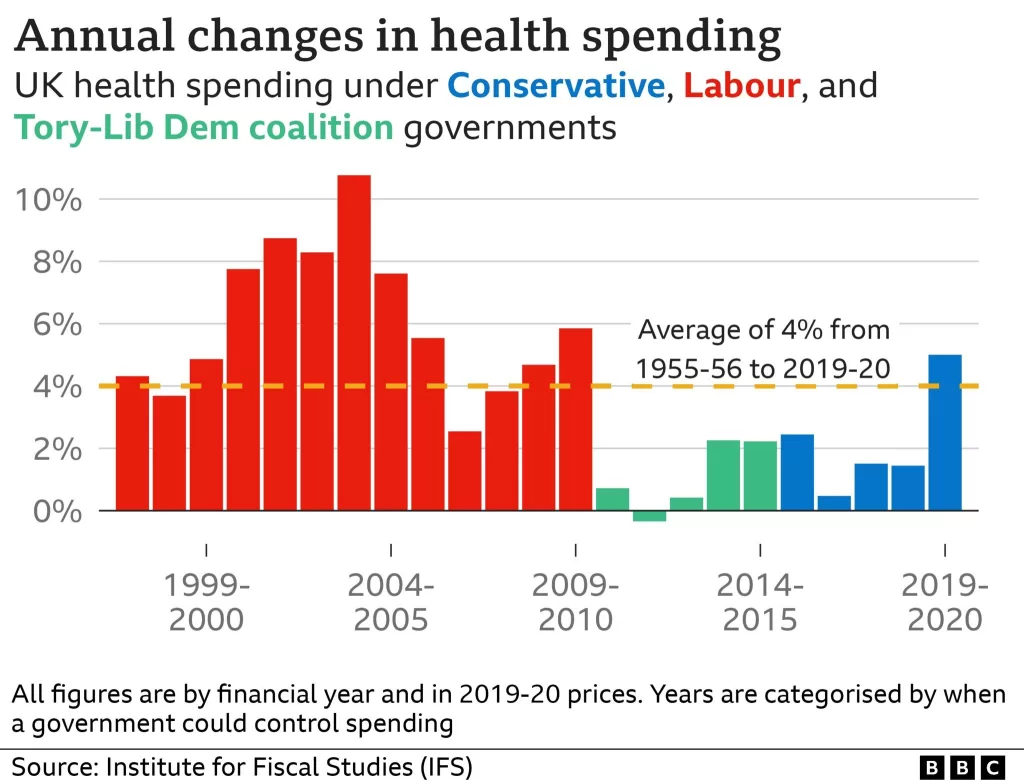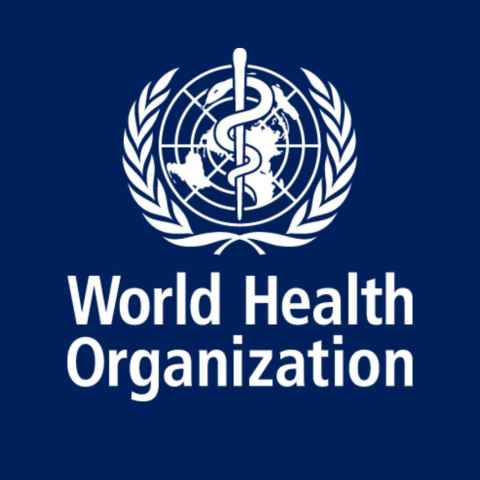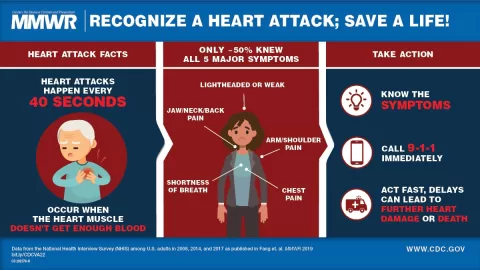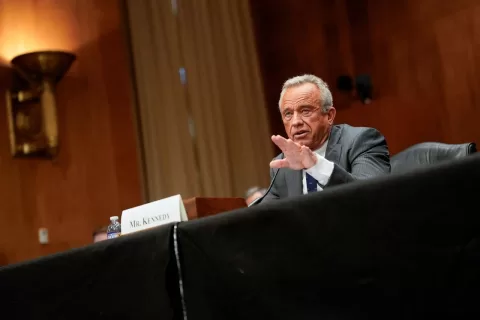COVID-19 funding cuts have recently made headlines as significant resources originally earmarked for pandemic response are being canceled by the Centers for Disease Control and Prevention (CDC). With a shocking $11.4 billion in grants being terminated, this move signals a substantial reduction in public health funding that many state health departments depended on for COVID-19 testing, vaccination, and addressing ongoing health disparities. The funding cuts, first reported by NBC News, represent a broader trend witnessed during the Trump administration, wherein critical financial support for combating the coronavirus was diminished. This cancellation not only impacts the operational capacity of health departments but also jeopardizes the longstanding efforts to combat infectious diseases and protect public health. As such, the ramifications of these cuts could ripple across community health initiatives, fundamentally altering the landscape of coronavirus response and pandemic preparedness efforts nationwide.
The recent reduction in financial support aimed at managing COVID-19 repercussions has stirred significant concern among health organizations across the country. Known interchangeably as the cancellations of coronavirus response budget allocations, this trend poses a serious threat to public health initiatives that were already under strain. Various sectors, including state health offices that had relied heavily on COVID-19 grants for their operations, now face a precarious situation. As agencies like the CDC retract previously promised funding for disease control and prevention efforts, the fallout could hinder the advancements made in managing public health crises like the ongoing challenges presented by the pandemic. In light of these developments, many fear that the resources necessary to safeguard community health are dwindling at a time when they are needed most.
Impact of COVID-19 Funding Cuts on Public Health
The recent cancellation of COVID-19 funding has profound implications for public health across the United States. With the Centers for Disease Control and Prevention (CDC) halting over $11 billion in grants, many state health departments find themselves in dire straits. This decision not only disrupts the programs designed to facilitate COVID testing and vaccinations but also undermines initiatives aimed at addressing health disparities exacerbated by the pandemic. Grant cancellations mean that critical resources for training community health workers and advanced healthcare infrastructure are jeopardized, ultimately placing communities at greater risk of infectious disease outbreaks.
Furthermore, the effects of these funding cuts extend beyond immediate COVID-19 efforts. With states like Minnesota and Illinois significantly impacted, local health departments are forced to reevaluate their entire operational budgets. The loss of funds for tracking technologies and disease surveillance directly threatens the preparedness for future health crises, such as potential measles outbreaks or avian flu sporadic cases. This precarious situation highlights the urgent need for sustainable public health funding to support ongoing responses to emergent health threats.
Responses to CDC Funding Cancellations
The abrupt cessation of CDC funding has sparked significant backlash from public health leaders and state officials. For instance, MDH Commissioner Brooke Cunningham expressed concerns regarding the suddenness of the funding cuts, which were anticipated to support health initiatives during a crucial period. Officials are left scrambling to recalibrate their strategies without the financial support that was previously guaranteed. The uncertainty surrounding these cancellations raises alarm bells throughout the healthcare community, as they fear that essential services may be compromised.
Moreover, as health departments across the country adjust to these changes, they are calling for a reevaluation of public health funding priorities. The cancellation of COVID-19 grants signifies not only a shift in focus from chronic disease management as per the current administration’s directives but also a potential neglect of the ongoing pandemic aftermath. Various health organizations are advocating for a reassessment to ensure that future funding allocations better address both current health crises and the long-term recovery efforts from the pandemic.
Long-Term Effects of Funding Cuts on Health Disparities
One of the critical concerns stemming from the cuts in COVID-19 funding is the exacerbation of health disparities in vulnerable populations. Community health workers play an essential role in mitigating these disparities, especially in areas hardest hit by the pandemic. The elimination of funding jeopardizes programs designed not only for immediate COVID response but also for ongoing health education and prevention initiatives that serve marginalized communities. Historically, these populations have faced barriers to accessing healthcare, and reduced funding will likely widen those gaps even further.
Public health experts argue that addressing health disparities requires consistent investment in community health infrastructure and outreach programs. Yet, with the current pattern of funding cuts, many states are now facing the reality of not being able to provide necessary preventative services or respond effectively to future health emergencies. It’s imperative that policymakers reconsider their approach to funding in order to prioritize equity in health access and outcomes across all demographics.
Challenges Faced by State Health Departments
State health departments are now at a crossroads, facing numerous challenges brought on by the latest CDC funding cancellations. As they prepare for a future with diminished resources, officials must prioritize how to allocate their limited budgets amid growing public health needs, including the management of infectious diseases and chronic health conditions. The Illinois Department of Public Health, for instance, has publicly stated that the loss of $125 million will severely limit their capacity for disease tracking and response technology, crucial components in managing public health.
These challenges are exacerbated by the current political climate and shifting health policies. Amidst efforts to manage the coronavirus response budget, state health departments are concerned that the prioritization of certain health issues over others undermines comprehensive public health strategies. Advocating for a balanced approach that incorporates both immediate responses to COVID-19 and foundational public health services is critical to setting the stage for a healthier population.
The Future of Public Health Funding in the Wake of Budget Cuts
As we look toward the future, the trajectory of public health funding remains uncertain in the wake of significant budget cuts. The conversation surrounding the value of investments in health infrastructure is becoming increasingly relevant. Stakeholders across the public health domain are calling for strategic planning and advocacy efforts to secure long-term funding solutions that address both existing and emergent health challenges. Policymakers must recognize the necessity of ongoing investments in health to safeguard communities, especially following the revenue losses during the pandemic.
Furthermore, as health departments grapple with diminished capacities, it is crucial for local and state officials to collaborate with federal entities to redefine their roles in managing public health crises. Engaging in proactive discussions about future pandemics, resource allocation, and leveraging technology for health monitoring can enhance preparedness and resilience. Policymaking that prioritizes sustained public health funding will be vital in ensuring that the lessons learned from the COVID-19 pandemic are not forgotten and that health systems are better equipped for the challenges ahead.
The Role of Local Health Departments Post-COVID Funding Cuts
Local health departments have traditionally served as the backbone of public health initiatives, especially during crises such as the COVID-19 pandemic. With recent funding cuts, their roles have been challenged, forcing many to reassess their operational capabilities and community engagement strategies. These departments are now under pressure to continue delivering essential health services while recovering from the financial implications of funding reductions. As funding becomes scarce, these local agencies are evaluating how best to utilize their limited resources to maintain critical public health programs.
In light of these challenges, local health departments must advocate for their sustainability and relevance in the post-pandemic world. This advocacy involves not only securing funding from state and federal sources but also improving visibility within their communities and demonstrating their impact on public health outcomes. Building partnerships with community organizations, healthcare providers, and local governments can lead to innovative solutions that enhance service delivery and address health needs effectively amid tight budgets.
Community Health Initiatives Amidst Funding Cancellations
Community health initiatives have played a pivotal role in the national COVID-19 response, particularly with regards to outreach and education efforts tailored to local populations. However, with the recent cuts to COVID-19 funding, these initiatives face significant threats to their continuity and effectiveness. Programs designed to enhance community awareness around vaccination and disease prevention are not only at risk but are already experiencing operational disruptions, which could set back progress made during the pandemic.
As the community health landscape shifts due to funding losses, leaders within these initiatives must be proactive in finding alternative financing solutions. Exploring partnerships with private entities, non-profits, and philanthropic organizations that prioritize public health can help bridge the funding gaps. Moreover, community engagement strategies that emphasize the importance of health literacy and preventive care must be revitalized to ensure that, despite budget constraints, community members remain informed and prepared for any future health challenges.
Consequences of Canceling COVID-19 Research Grants
The cessation of COVID-19 research grants poses significant risks not only in terms of pandemic preparedness but also in understanding the long-term implications of the virus on public health. Funding cancellations by organizations like the National Institute of Allergy and Infectious Diseases (NIAID) threaten vital projects aimed at developing effective treatments and vaccines for COVID-19. As researchers and institutions begin to lose access to crucial funding sources, the advancement of scientific knowledge necessary for combating future outbreaks and managing existing conditions takes precedence.
Moreover, halting investments into COVID-related research contradicts earlier commitments made by public health officials to prioritize pandemic-related studies. The likelihood of encountering new variants or health issues stemming from post-COVID conditions underscores the urgency of maintaining robust research funding. It is imperative for stakeholders to advocate for a return to a more comprehensive approach to public health research that encompasses not just immediate COVID-19 responses but also broader health implications for the population moving forward.
Advocacy for Sustainable Public Health Funding
In the face of COVID-19 funding cuts, advocacy for sustainable public health funding has become more critical than ever. Public health officials, community leaders, and health advocates are joined in urging policymakers to reassess budget allocations and prioritize health funding in both the short and long term. This advocacy is crucial for ensuring equitable access to healthcare services, especially as many states grapple with the implications of reduced federal support. Mobilizing public support for health funding initiatives can create a collective voice that emphasizes the importance of health as a fundamental right.
In addition, the current public health landscape requires a collaborative approach to advocacy. Engaging diverse stakeholders—including healthcare providers, academic institutions, and community organizations—in dialogue about the necessity of sustained funding can help shape policies that effectively promote health equity. By fostering partnerships that prioritize comprehensive health strategies, advocates can influence decision-making processes and ensure that public health systems are adequately supported to meet both current needs and future challenges.
Frequently Asked Questions
What are the implications of the recent COVID-19 funding cuts from the CDC?
The recent COVID-19 funding cuts from the CDC involve the cancellation of $11.4 billion in grants meant for state and community health departments, impacting essential COVID-19 response efforts. These cuts hinder states’ ability to provide COVID testing, vaccination, and support for public health initiatives aimed at addressing health disparities.
How will the CDC funding cancellations affect state health departments?
The CDC funding cancellations have significant consequences for state health departments, as seen in Minnesota where $226 million in COVID-19 grants have been terminated. This abrupt loss of funding disrupts preparedness for public health crises and undermines technology upgrades essential for tracking infectious diseases.
What is the reasoning behind the reduction in COVID-19 grants?
The reduction in COVID-19 grants stems from a statement by HHS claiming the COVID-19 pandemic is over, asserting a shift in funding priorities towards chronic disease initiatives rather than ongoing pandemic response. This viewpoint has led to funding cuts across several public health programs.
Which states have been notably affected by COVID-19 funding reductions?
States like Minnesota and Illinois have been notably affected by COVID-19 funding reductions, with Illinois losing $125 million intended for COVID response initiatives. These cuts threaten local health department capabilities and overall public health safety.
What types of programs are at risk due to COVID-19 funding cuts?
Programs at risk due to COVID-19 funding cuts include COVID testing, vaccination campaigns, disease tracking technologies, and public health surveillance systems necessary for combating infectious diseases like measles and H5N1 avian flu.
Is COVID-19-related research also impacted by funding cuts?
Yes, COVID-19-related research is impacted as well. The National Institute of Allergy and Infectious Diseases is canceling COVID-19 research grants, including a $577 million NIH initiative focused on developing new treatments for the virus, reflecting a broader reduction in pandemic-entwined funding.
What are the long-term effects of these COVID-19 funding reductions on public health?
The long-term effects of these COVID-19 funding reductions on public health could include diminished responsiveness to future pandemics, weakened infrastructure for disease control, and increased health disparities as communities struggle without critical public health supports.
How are local health departments responding to the CDC funding cuts?
Local health departments are responding with concerns regarding the CDC funding cuts, emphasizing that the losses will drastically impair their ability to safeguard community health and prepare effectively for potential outbreaks.
Will there be any future funding allocated for COVID-19 response initiatives?
While current funding has been cut significantly, future allocations for COVID-19 response initiatives will depend on federal budget decisions and the evolving public health context, which may prompt reconsideration of funding priorities.
What can individuals do to support public health funding despite COVID-19 funding cuts?
Individuals can support public health funding by advocating for legislative action, participating in community health initiatives, and engaging in local discussions about health policy to highlight the importance of sustained public health financing.
| Key Points |
|---|
| CDC cancels $11.4 billion in COVID-19 funding, affecting state and community health departments. |
| Funding was mainly for COVID testing, vaccinations, and community health worker training. |
| Cuts started on March 24, 2023, reflecting a trend since earlier funding reductions under the Trump administration. |
| Minnesota lost $226 million; Illinois lost $125 million, impacting public health initiatives. |
| Cuts affect technology for tracking diseases and preparation for future health emergencies. |
| Research programs and initiatives related to COVID-19 and long COVID are also being terminated. |
Summary
COVID-19 funding cuts are severely impacting public health departments and initiatives across the United States. The cancellation of critical resources previously allocated to states for COVID-19 responses is a significant concern, undermining efforts to track and combat infectious diseases. State health officials warn that these cuts will hinder their capacity to respond to current and future health emergencies, ultimately affecting the safety and health of the population. It is crucial to address these funding cuts to ensure preparedness against potential public health crises.
The content provided on this blog (e.g., symptom descriptions, health tips, or general advice) is for informational purposes only and is not a substitute for professional medical advice, diagnosis, or treatment. Always seek the guidance of your physician or other qualified healthcare provider with any questions you may have regarding a medical condition. Never disregard professional medical advice or delay seeking it because of something you have read on this website. If you believe you may have a medical emergency, call your doctor or emergency services immediately. Reliance on any information provided by this blog is solely at your own risk.








